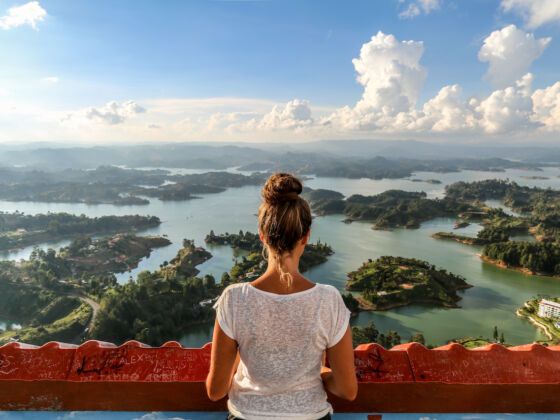The hummingbird skull necklace
A Spanish teacher in Guatapé, Colombia (a town of painted houses and a giant rock called El Penal), told me about her eco-hostel in San Rafael, a quiet town half an hour away. La Casa Colombiana turned out to be even better than Guatapé. I spent afternoons in a hammock, listening to the calls of the tropical birds around us, or playing fetch with a maniac German Shepherd.
One afternoon, I went for a swim in the nearby river. I took off the only piece of jewelry I traveled with, a rose-gold hummingbird skull necklace, and set it on a rock on the riverbank. The water was crystal clear and marvelous, though the current made it difficult to do much more than drift. When I got back to the hostel, I realized I’d left my hummingbird behind.
It was a wonderful conversation piece — I’d memorized the phrase “cráneo de picaflore” to explain it to strangers — and had been my tether to New York chic. Maybe it adorns the collarbone of a stranger now, or maybe it’s still at the riverbank, gathering moss on a slippery rock.
